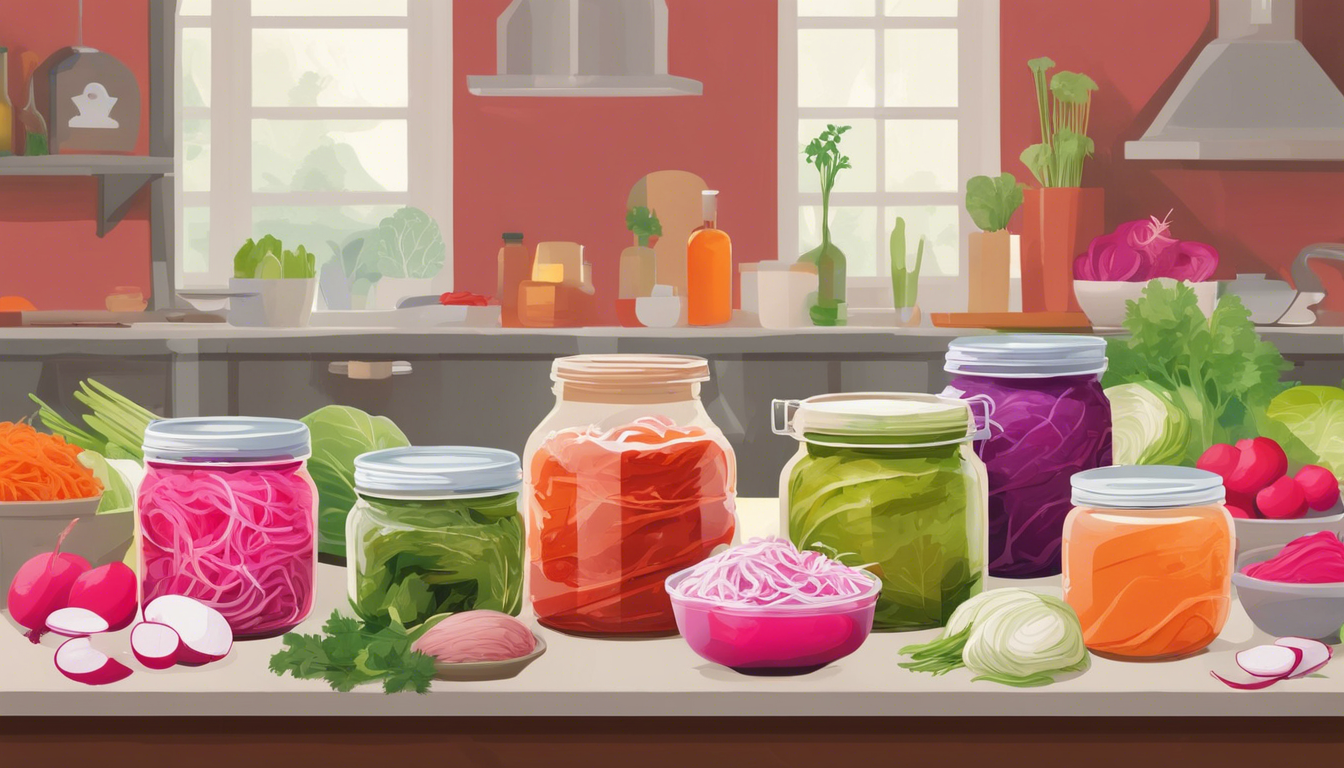In recent years, the spotlight has turned towards gut health, and for good reason.
With a growing body of research highlighting the importance of a balanced microbiome, many health enthusiasts are seeking ways to optimize their digestive systems.
One powerful ally in this quest is fermented foods.
But what exactly are fermented foods, and how can they transform your health?
In this article, we’ll explore the science behind fermentation and probiotics, delve into the rich history of these foods, and provide practical tips on incorporating them into your daily meals for a happier gut.
Key Takeaways
- Fermented foods are a rich source of probiotics that promote gut health and improve nutrient absorption.
- Making fermented foods at home is simple and can enhance your diet with beneficial microorganisms.
- Historical fermentation practices not only preserved foods but also contributed to the overall health of ancient populations.
The Science Behind Fermentation and Probiotics
Fermentation is a fascinating scientific process that has gained considerable attention in recent years, particularly within the realms of gut health and nutrition.
This age-old technique involves the conversion of sugars into acids, gases, or alcohol by microorganisms, such as bacteria and yeast.
This transformative process is responsible for the creation of a variety of beloved foods and beverages, including yogurt, sauerkraut, kimchi, wine, and aged cheeses.
At the heart of these fermented foods are probiotics—beneficial live bacteria that can have a positive impact on our digestive system.
Research suggests that incorporating these foods into our diet can promote gut health, enhance nutrient absorption, and even bolster the immune system.
Historical evidence shows that fermentation was not only essential for preserving food for ancient civilizations, allowing them to enjoy seasonal produce year-round, but it also contributed a wealth of nutrients, vitamins, and minerals crucial for overall well-being.
For example, kefir, a drinkable yogurt-like product, is renowned for its rich probiotic content and therapeutic properties.
Recent studies corroborate that many fermented foods are teeming with beneficial microbial cells, making them a powerhouse for health.
In addition to their health benefits, the process of making fermented foods at home is remarkably simple and rewarding.
Not only does it allow for culinary creativity, but it also enhances food longevity due to the inherent preservation qualities of probiotics.
Embracing fermented foods can therefore serve as a delicious pathway to better health and vitality.
Easy Ways to Incorporate Fermented Foods into Your Diet
Incorporating fermented foods into your diet can be both enjoyable and straightforward.
Start with staples like yogurt and kefir, which can easily be added to smoothies or enjoyed on their own for breakfast or snacks.
If you’re feeling adventurous, try adding sauerkraut or kimchi to sandwiches, salads, or as side dishes to your meals for a flavorful twist.
You can also experiment with homemade ferments like pickles or kombucha, which not only provide probiotics but also allow you to customize flavors to your liking.
Using starter cultures, you can easily ferment anything from vegetables to fruits right in your kitchen.
For those who are short on time, consider fermented condiments like miso or tempeh, which can enhance the taste of many dishes while adding nutritional benefits.
Gradually introducing these foods into your daily routine can help your body adapt, optimizing your gut health without overwhelming your digestive system.




